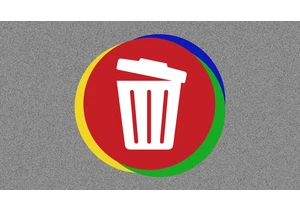The fate of Google’s vast empire is now in the hands of a federal judge in Washington, D.C., as hearings begin to determine whether the tech giant should be broken up for maintaining an illegal monopoly in search.
If the court rules against Google, the outcome could send shockwaves through the tech industry. The company might be forced to divest major assets—potentially including its Chrome browser or even the Android operating system. While the government has taken similar antitrust actions in the past, it’s been more than 25 years since a household name faced a breakup of this scale.
So, what happened to the companies that were split up—or nearly split up—under government pressure? Let’s take a look back.
Microsoft
In 2000, Microsoft came dangerously close to being forced to separate its Windows operating system from its Office suite after a court found it had illegally stifled competition in the personal computer market. However, the breakup order was overturned by an appeals court the following year.
Still, the monopoly ruling left a lasting mark on Microsoft. The company could no longer block PC makers from distributing software from competitors, paving the way for Google and others to grow. As web browsers became increasingly central to the computing experience, that shift proved critical.
AT&T
The government made multiple attempts to break up AT&T, starting in 1913, but didn’t succeed until 1984. The result was the dissolution of “Ma Bell” into several smaller regional companies—known as the Baby Bells—including US West, Ameritech, Nynex, and BellSouth, which handled local calling. AT&T retained control of its long-distance network but soon faced competition, driving prices down. To put it in perspective: A three-minute coast-to-coast call in 1987 cost $3.08 (about $8.45 today). Now, long-distance calls are typically unlimited and included in your monthly plan.
Those Baby Bells grew up and became a strong competitor for AT&T, too: Nynex, GTE, and Bell Atlantic merged to become Verizon, whose market cap is now roughly equal to that of AT&T.
Standard Oil
The John Rockefeller energy company was broken up in 1911, one of the first dissolutions of a giant monopoly. It was split into 34 different companies, including Exxon Mobile, Chevron, and BP.
That breakup changed the oil industry, sparking competition that has continued through today. It also changed the landscape for antitrust, introducing the “rule of reason,” which says businesses are anticompetitive only if they work against the public interest. That’s the rule judges are considering today as they weigh whether to break up Big Tech companies.
IBM
IBM could have been an early cautionary tale for today’s Big Tech giants. In 1969, facing a looming antitrust suit, the company chose to preemptively unbundle its hardware and software businesses—effectively treating them as separate entities. At the time, IBM commanded 70% of the computer market.
This voluntary separation helped the company avoid an antitrust judgment, though it still spent years in court and tens of millions of dollars in legal battles. Missteps with subsequent product launches further eroded its market share and leadership. But the rise in competition ultimately lowered costs and helped spark the personal computer revolution. As legal scholar Tim Wu noted in 2018, Apple as we know it might never have existed without the government’s prosecution of IBM.
“If IBM had been completely unwatched by regulators, by enforcement, doing whatever they wanted, I think IBM would have held on and maybe we’d still be using mainframes, or something—a very different situation,” he said in an interview with Vox.
American Tobacco
Before Big Tobacco became a catchphrase, there was American Tobacco—a company deemed so dominant that in 1911 it was found in violation of antitrust laws.
Unlike other breakups, however, the dissolution of American Tobacco had little real impact on market dynamics. The newly formed companies—such as R.J. Reynolds and Liggett & Myers—continued to dominate, forming an oligopoly. With just a few players controlling the industry, prices remained largely unaffected by competition. Instead, increased marketing budgets drove a rise in consumer use.
Chcete-li přidat komentář, přihlaste se
Ostatní příspěvky v této skupině

For years, Google made it incredibly easy to look up someone’s address, phone number, age, and other personal info.
All you had to do was type in a person’s name and where they live, and




A commercial airliner was on final approach to San Francisco’s international airport in November when the crew spotted a drone outside the cockpit window. By then it was too late “to take evasive

While Zoom is unquestionably the biggest name in videoconferencing, its free tier has some limitations—particularly the 40-minute time cap on group meetings. The good news is that several excellen

Francesco Ferretti had a problem. His research expedition to track white sharks in the Mediterranean was suddenly adrift—the boat he’d arranged had vanished into the pandemic’s chaos o
